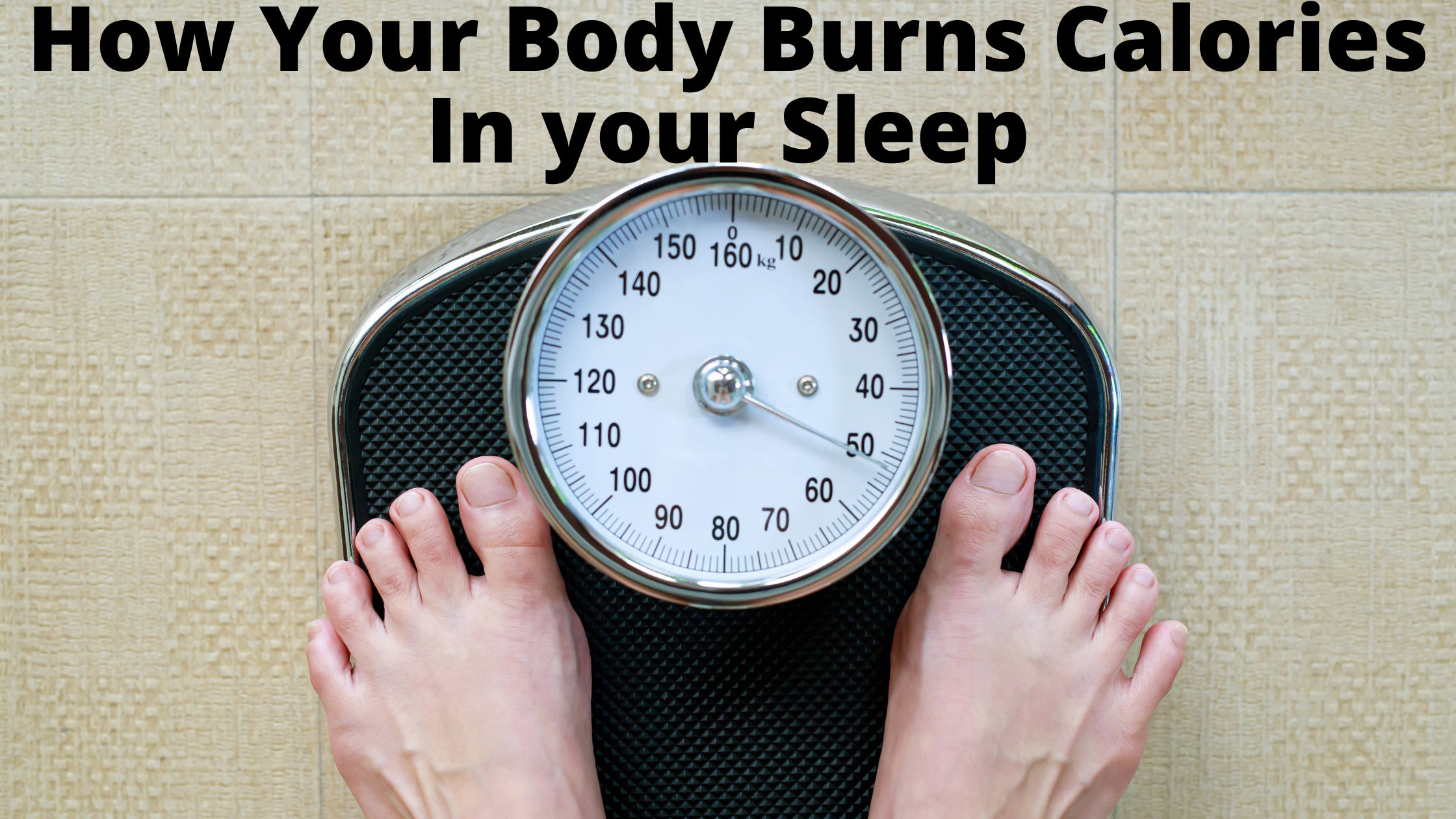Did you know that you are actually burning calories while you sleep? You're not burning as much as you would working out for 30 minutes or running a marathon, but your body still has to work to keep alive, even though you're technically doing nothing. Continue reading to find out how your body uses calories and why sleep is so important.
How many calories do you burn while you sleep?
Although it's hard to determine the amount of calories your burn while you sleep, you can approximately burn around 50 calories an hour. However, every person burns a different amount depending on their personal basal metabolic rate (BMR).
Basal Metabolic Rate is the energy needed for essential functions like breathing, circulation, temperature regulation and cellular growth and repair. In most people this accounts for about 80% of the total calories burned in a day. The brain itself burns glucose for energy accounting for about 20% of the calories we consume at rest.
Sleep is time for the body to do most of this repair and regeneration. In order to do this more effectively, our body temperature drops, our breathing slows and our metabolism lowers. On average most people burn about 15% fewer calories while sleeping, compared with their basal metabolic rate for the day.
What affects the Basal Metabolic Rate?
The basal metabolic rate varies from person to person depending on a number of factors, only some of which can be changed:
- Height and weight
- Fitness
- Gender
- Age
- Diet
- Sleep quality
- Race
- Genetics
- Hormones and medical concerns
How to calculate your calories burned while asleep
You can calculate your BMR, or the number of calories you burn while sleeping, using a calorimeter. This measures the amount of energy you are consuming by analyzing the oxygen and carbon dioxide being inhaled and expelled from your body.
If you want a super accurate recording of your BMR, then you can spend a night in a lab, don't exercise for 24 hours, fast for 12 hours, and sleep for at least 8 hours prior to the reading. This is important because digestion and exercise are energy hungry processes that cause spikes in metabolism. The measurements are then carried out in the morning in a darkened, temperature-controlled setting.
However, this sort of testing is not practical as it's expensive and too complex. You can get a rough idea of your BMR using one of several equations. A common option is the Harris-Benedict equation which is based on weight, height, age and gender:
Male: BMR = 66.5 + (13.8 x weight in kg) + (5 x height in cm) – (6.8 x age in years)
Female: BMR = 655 + (9.6 x weight in kg) + (1.8 x height in cm) – (4.7 x age in years)
This equation gives you your basal metabolic rate while awake over a 24-hour-period. Divide this number by 24 and then multiply that number by the amount of hours you sleep. This is how you can find out approximately many calories you are burning in your sleep.
How sleep stages affect calories burned
Not all sleep stages burn the same amount of calories. Basic functions, like breathing and circulation, continue throughout the night, the body's energy requirements may change throughout the night.
The stage of sleep that uses the most energy is REM sleep. During REM our heart rate increases and our brains use a lot more energy than NREM sleep. In contrast, stage three, which is considered deep sleep, has a lower heart rate, respiratory rate, core body temperature, and brain activity. However, during this stage of sleep is when growth hormone is released and is also when the immune system plays a huge factor.
Can you increase the number of calories your burn during sleep?
To increase the number of calories you burn at night, you would have to increase your bmr. The easiest way to do this is to get enough exercise, sleep well, and eat right.
Although we burn more calories when we're awake, skipping sleep in order to sustain higher caloric usage is actually not what happens. There is a link between obesity and chronic sleep loss showing that it's actually better for you to sleep than to skip sleep if you're hoping to slim down.
A lack of sleep causes a surge in hormones that stimulate hunger and cravings for high-calorie foods. Sleep loss also increases cortisol levels which impacts your body's ability to regulate glucose and may contribute to weight gain, insulin resistance and even type 2 diabetes.
The brain burns most of its calories during REM sleep, so interruptions that affect the time spent in this stage can impact the number of calories being burned. If you can adopt a proper sleep hygiene and sleep in a room optimized for great sleep (cool, dark and quiet) then you can encourage your body to naturally cycle through the sleep stages and optimize your metabolism while sleeping.
It's important that you get a good night's sleep, while also improving your daytime activities if you're hoping to see the scale budge. If you're having trouble getting a good night's rest, then please click the orange button below to speak with a sleep professional.
https://www.sleepfoundation.org/how-sleep-works/how-your-body-uses-calories-while-you-sleep


